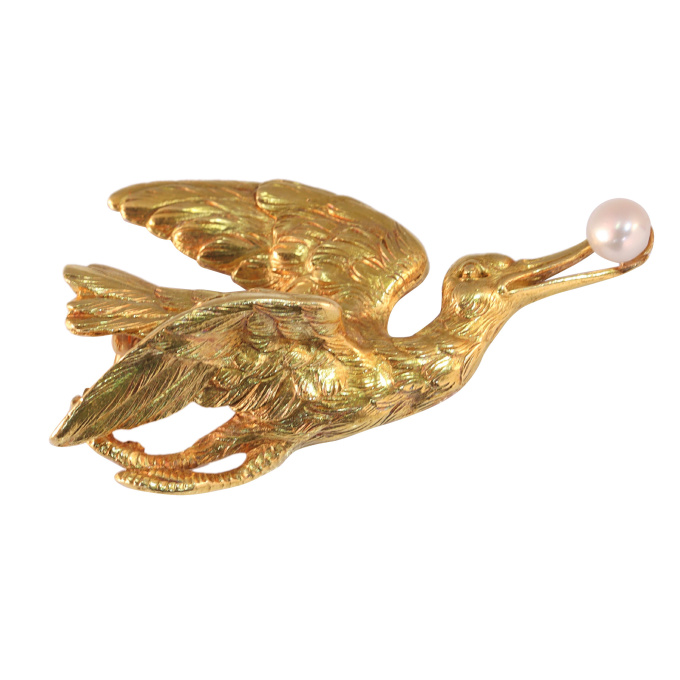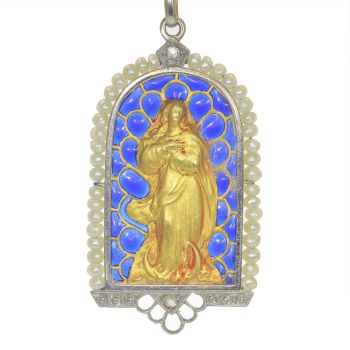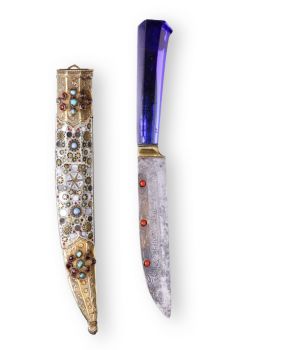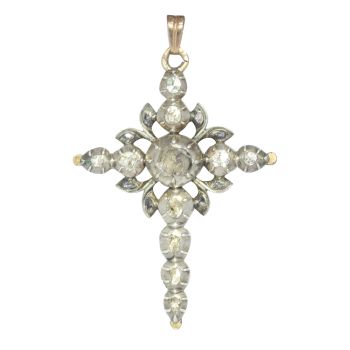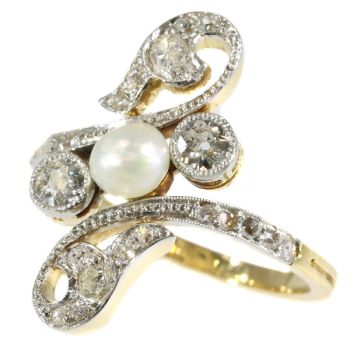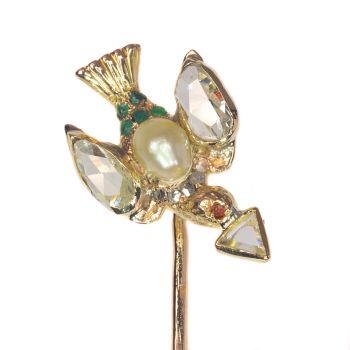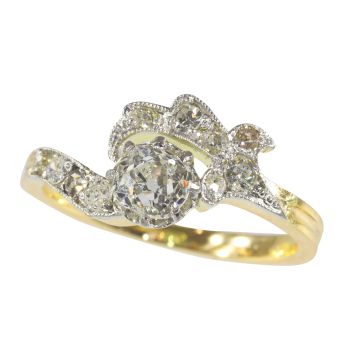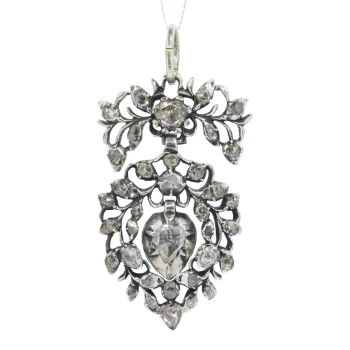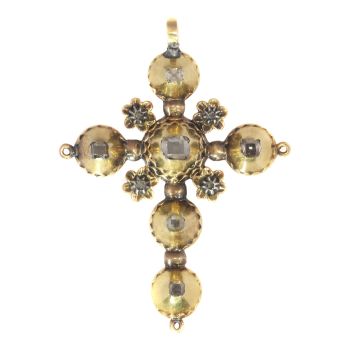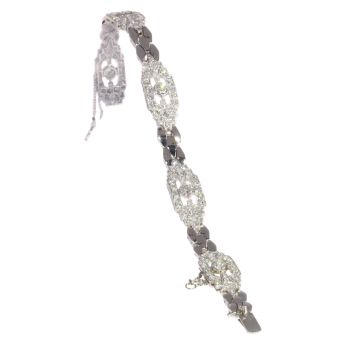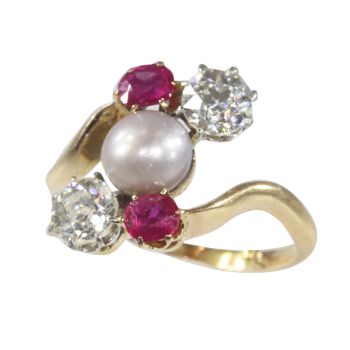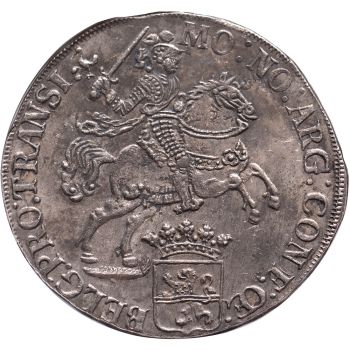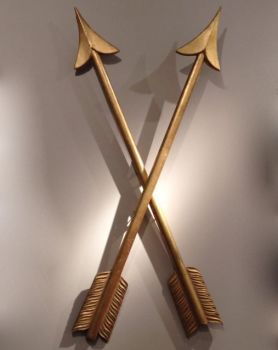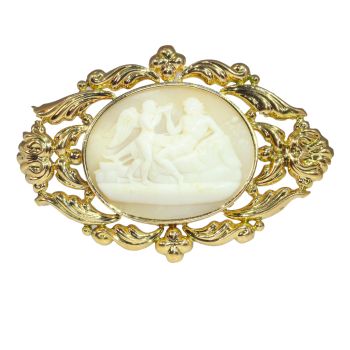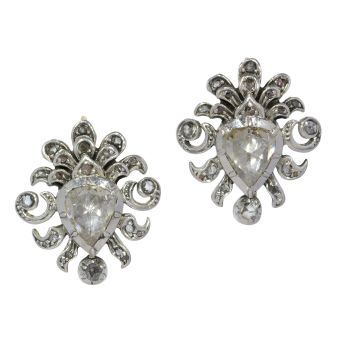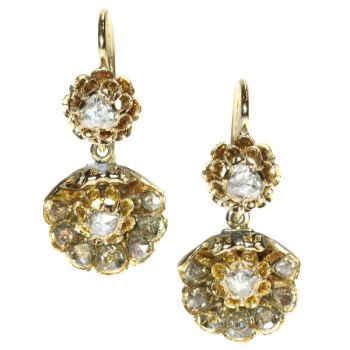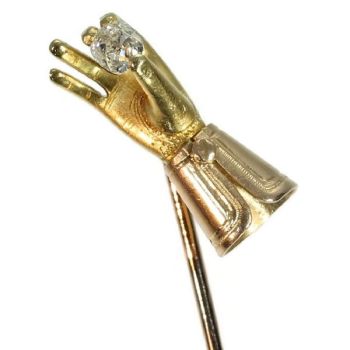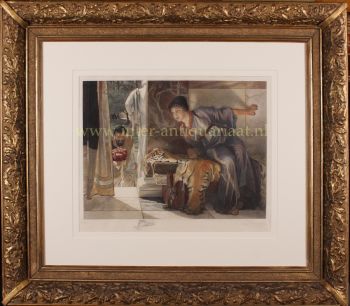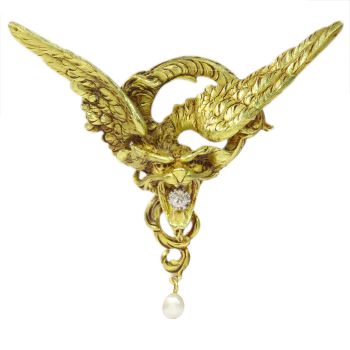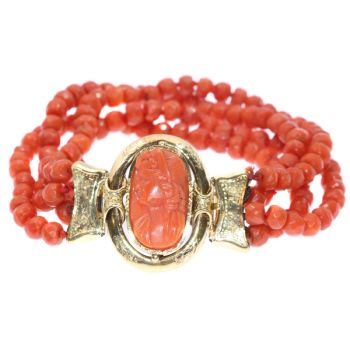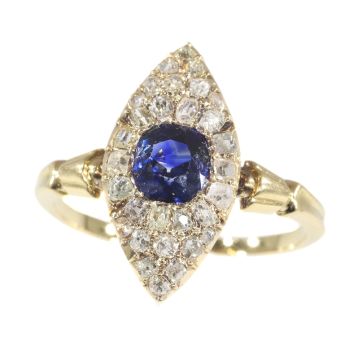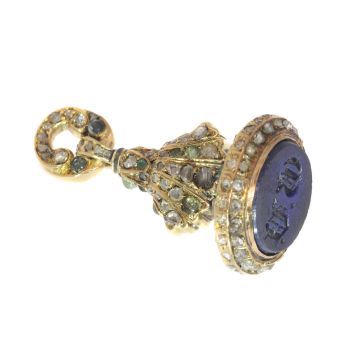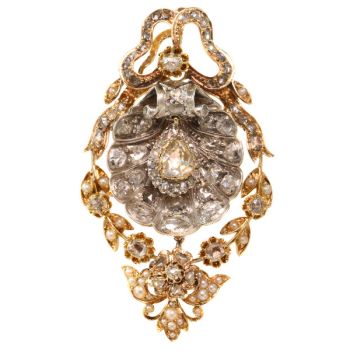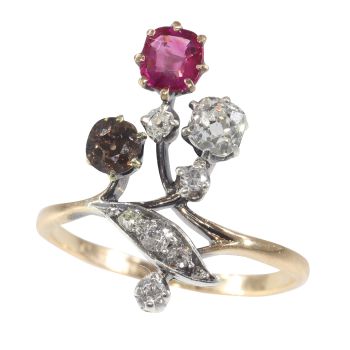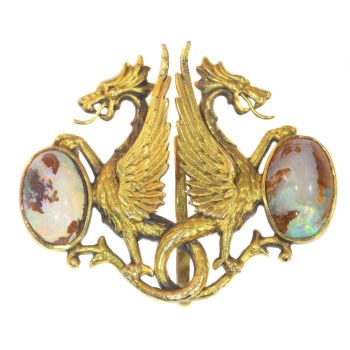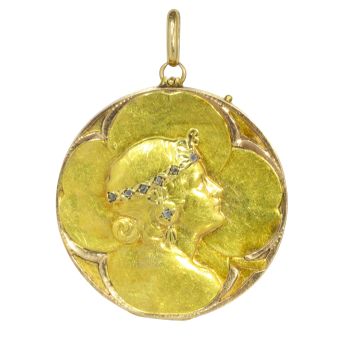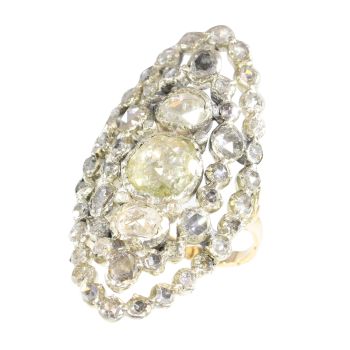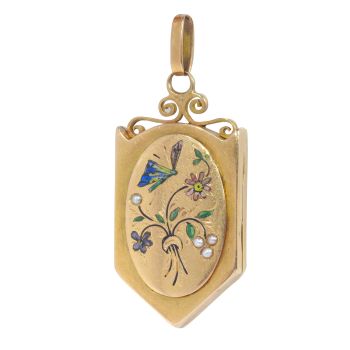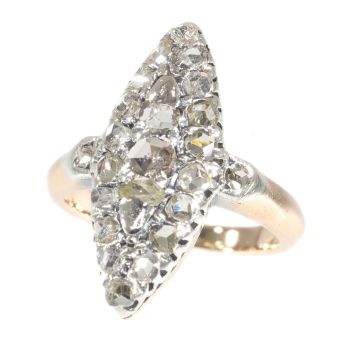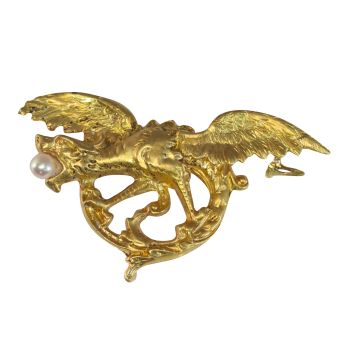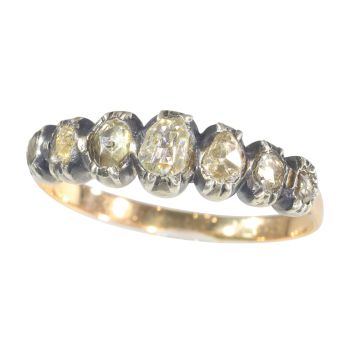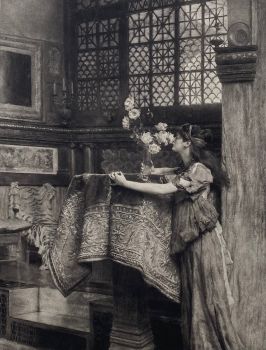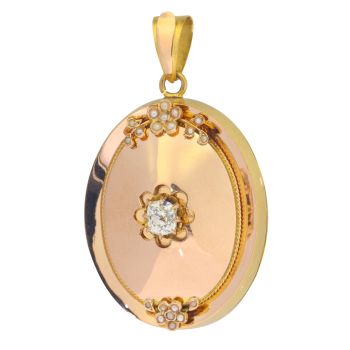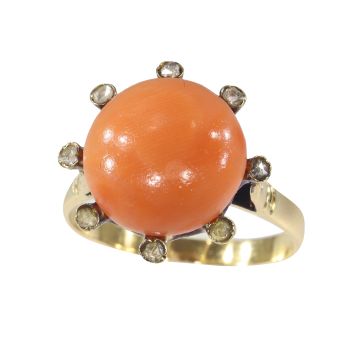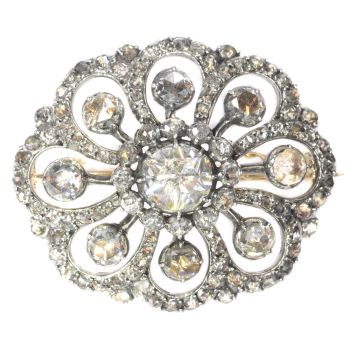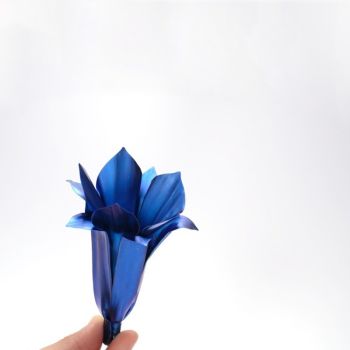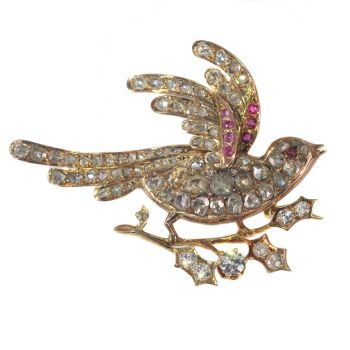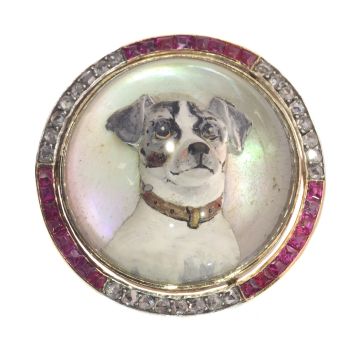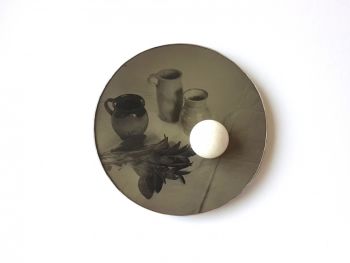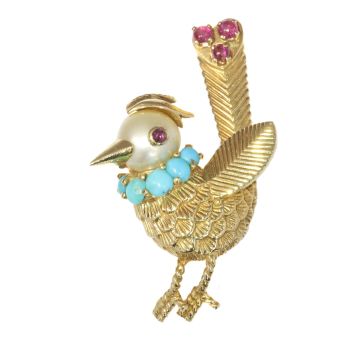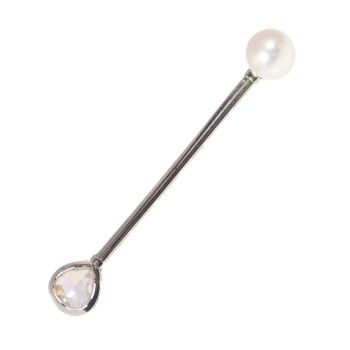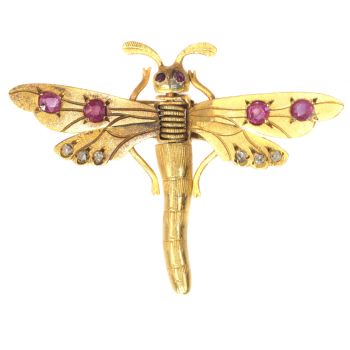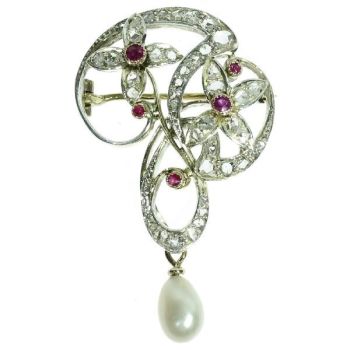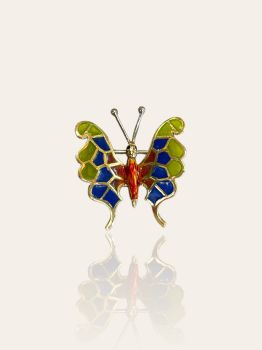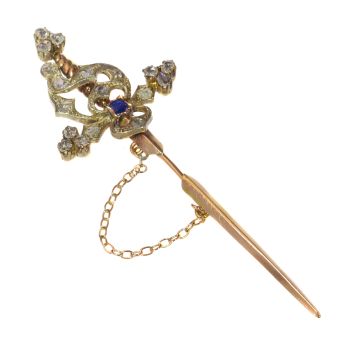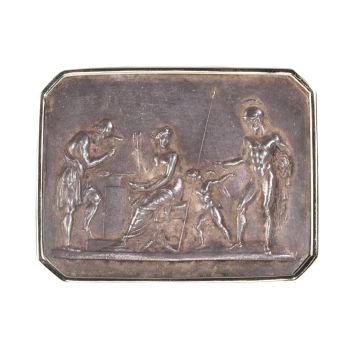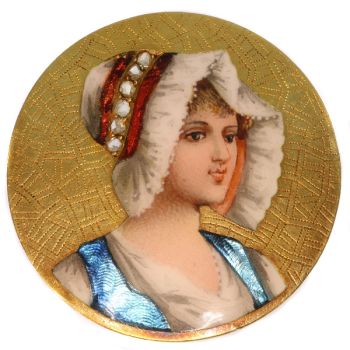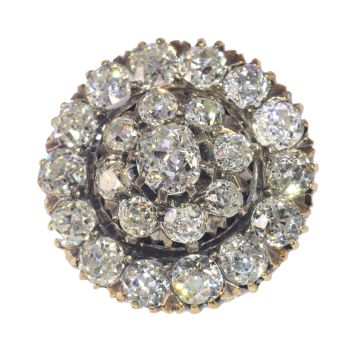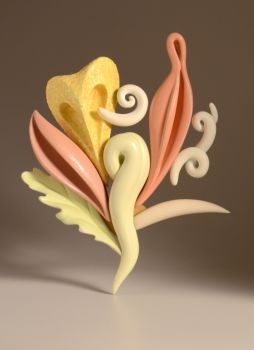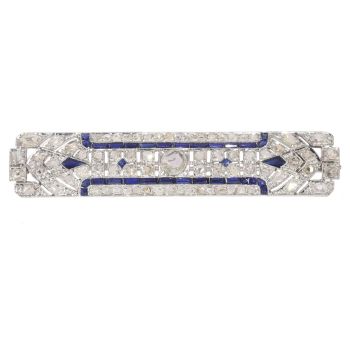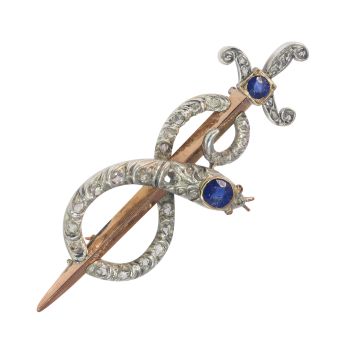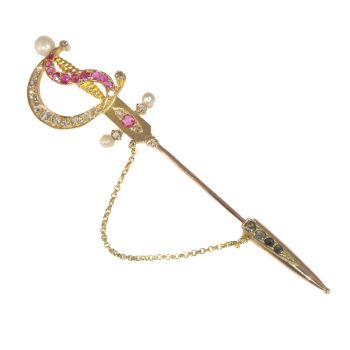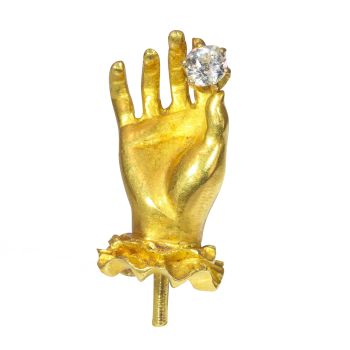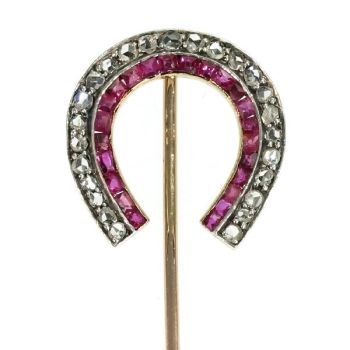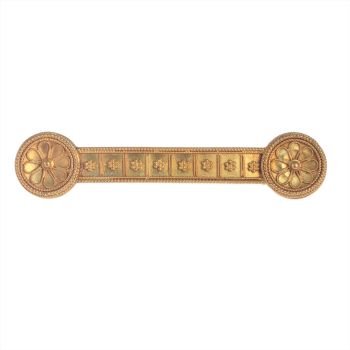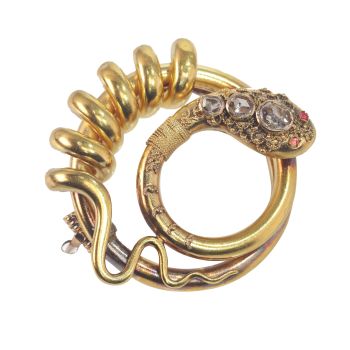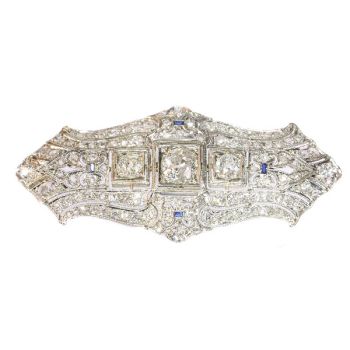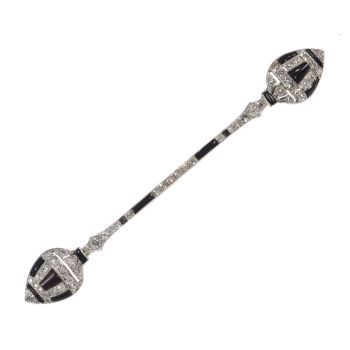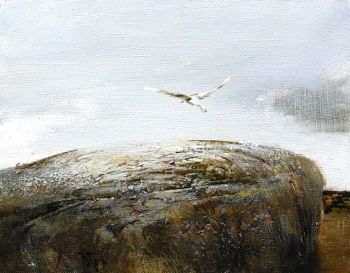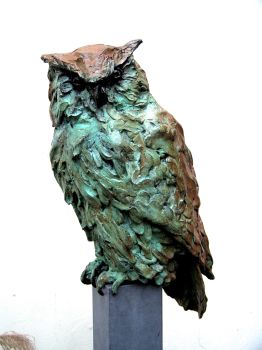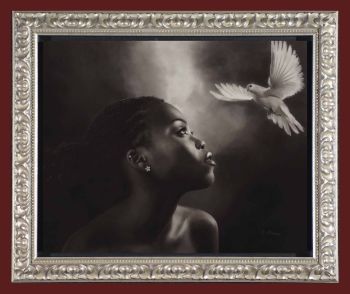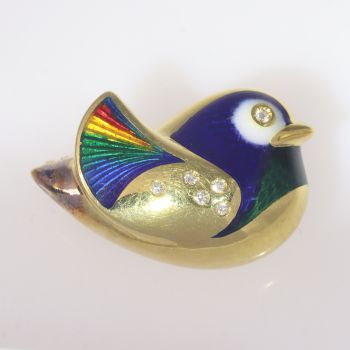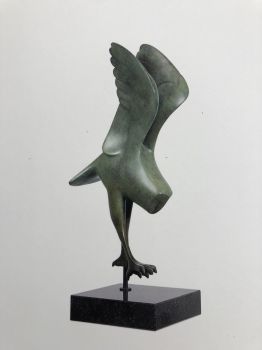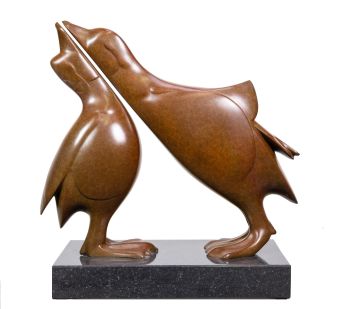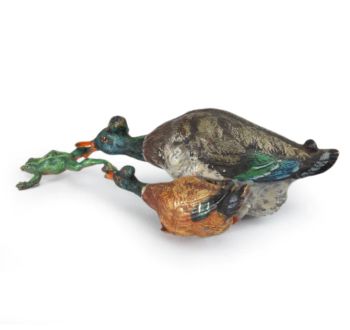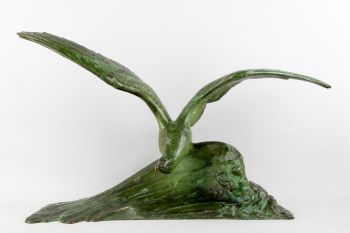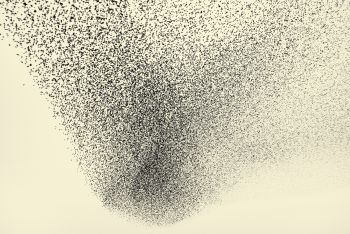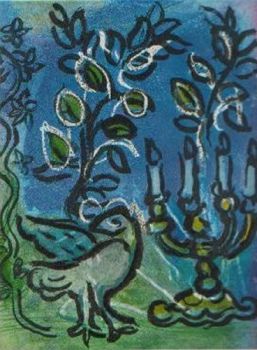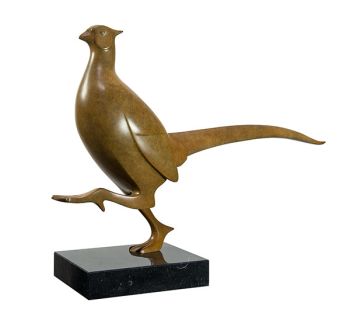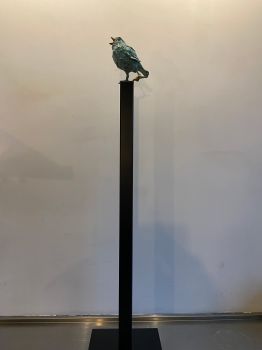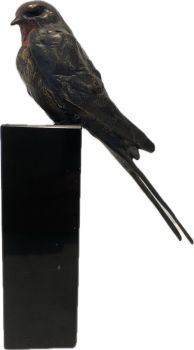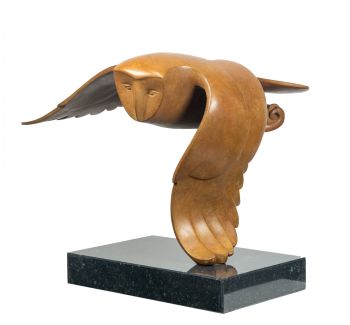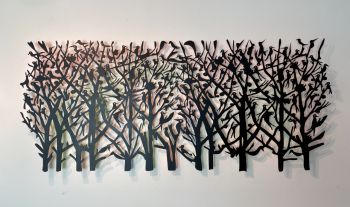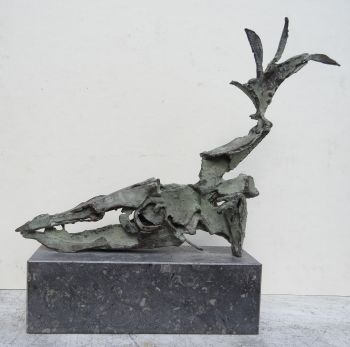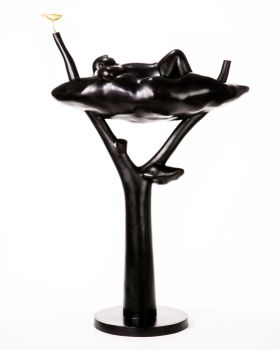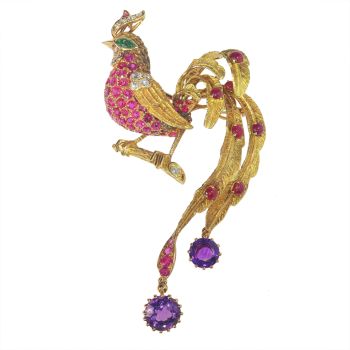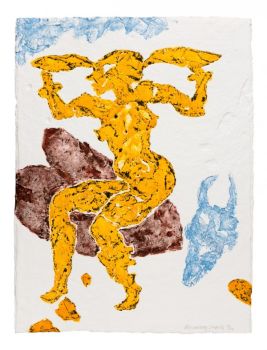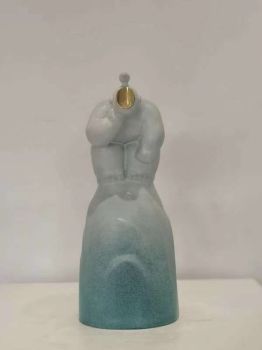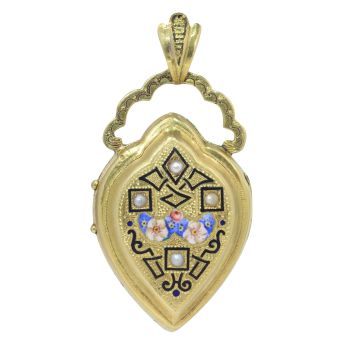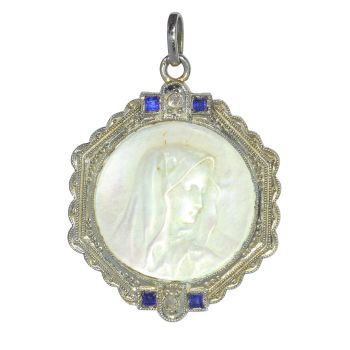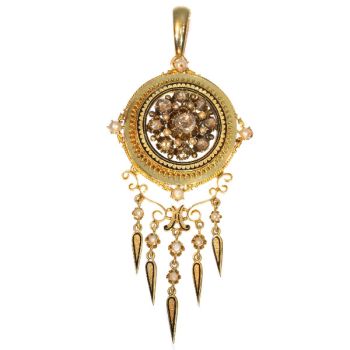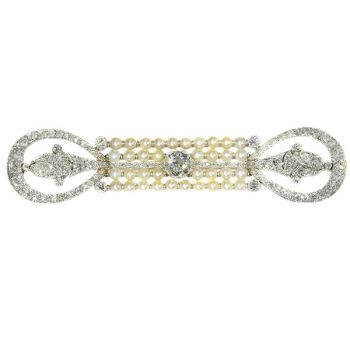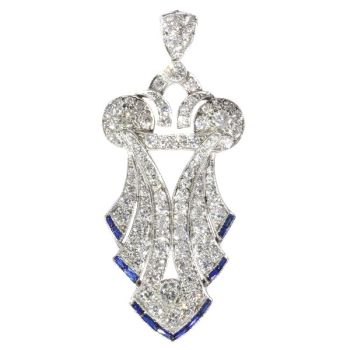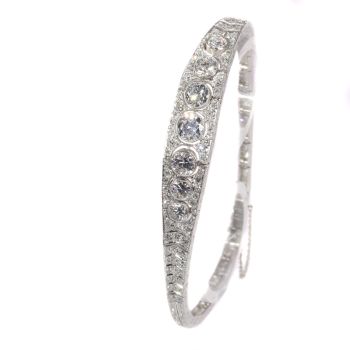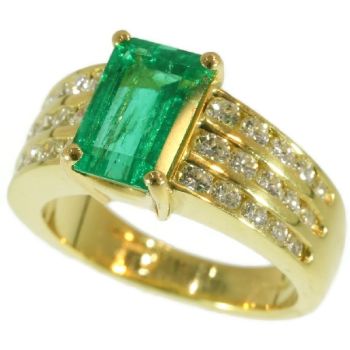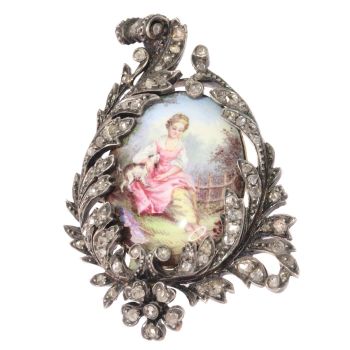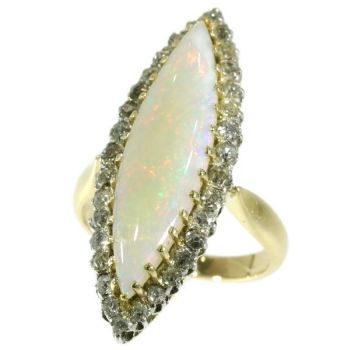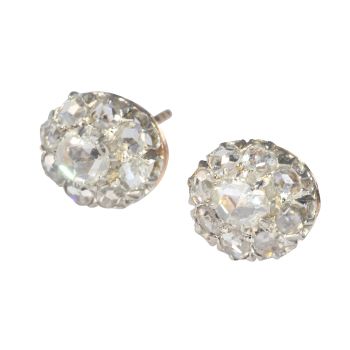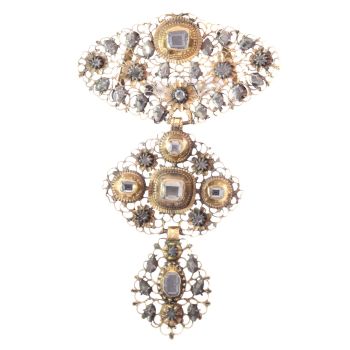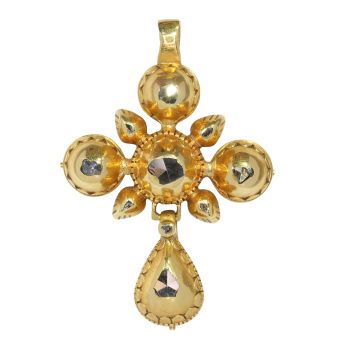Elegance in Flight: The Victorian Stork Brooch-Pendant 1900
Artista Desconocido
€ 6.250
Adin Fine Antique Jewellery
- Sobre la obra de arte
Enveloped in the serene beauty of a bygone era, this late Victorian brooch/pendant captures the quiet elegance of nature through the depiction of a realistically crafted gold stork in mid-flight. Holding a lustrous pearl within its beak, the storksymbolises a tranquil passage through life, embodying the virtues of calmness and inner peace. Crafted circa 1900, this exquisite piece serves not only as a testament to the whimsical motifs and refined craftsmanship of its period but also as a bearer of serenity, inviting its wearer to carry the calm and poised grace of the natural world. Its ability to be worn as both a brooch and a pendant adds a versatile charm to this heirloom, making it a timeless emblem of tranquillity and elegance.
Antique jewelry object group
Elegance in Flight: The Victorian Stork Brooch-Pendant
Condition
very good condition
more info on our condition scale
Country of origin
unknown
Style
Late-Victorian - Victorian decorative arts refers to the style of decorative arts during the Victorian era. The Victorian era is known for its eclectic revival and interpretation of historic styles and the introduction of cross-cultural influences from the middle east and Asia in furniture, fittings, and Interior decoration.
Victorian design is widely viewed as having indulged in a regrettable excess of ornament. The Arts and Crafts movement, the aesthetic movement, Anglo-Japanese style, and Art Nouveau style have their beginnings in the late Victorian era.
See also: late-Victorian
more info on styles
Style specifics
The Late or Aesthetic Victorian Period - Experts divide the reign of Queen Victoria, also called The Victorian era (1837-1901) into three periods of about twenty years each; The Romantic Victorian Period (1837 - 1860), The Grand Victorian Period(1860 - 1880), and the Late or Aesthetic Victorian Period (1880 - 1901).
We consider this to be of The Late or Aesthetic Victorian Period.
Jewelry of this period is changing back from heavy to more smaller, romantic pieces with often whimsical motifs. Jewelers using diamonds and bright gemstones in elaborated and fine feminine pieces.
Period
ca. 1900
Events & facts of this era, poetry of this era, fashion of this era.
Source of inspiration
Mythology
Theme
Stork - This lucky bird is a migratory one that returns with the reawakening of Nature. That is why in Northern countries storks are supposed bringing babies. The stork in this pendant has probably just arrived. The stork is also the symbol of filialpiety, since it is claimed that storks feed their parents in their old age. The elegant bird is especially in China the symbol of longevity as it reaches an amazing great age.
Material 18K
yellow gold (touchstone tested)
more info on precious metals
Precious stones
One pearl
Birthstones
Pearl is the birthstone (or month stone) for June.
more info on birthstones
Hallmarks
Illegible remains.
more info on hallmarks
Dimensions
4,58 cm (1,80 inch) x 2,81 cm (1,11 inch)
see picture with a ruler in millimeters and inches
Weight
17,30 gram (11,12 dwt)
Adin Reference Nº
24071-0151
Copyright photography
Adin, fine antique jewellery
Additional information
our latest acquisitions
jewelry glossary
wall of fame
visit us in Antwerp
subscribe to our mailinglist
- Sobre el artista
Puede suceder que un artista o creador sea desconocido.
Algunas obras no deben determinarse por quién está hecho o por (un grupo de) artesanos. Algunos ejemplos son estatuas de la Antigüedad, muebles, espejos o firmas que no son claras o legibles, pero también algunas obras no están firmadas en absoluto.
También puedes encontrar la siguiente descripción:
•"Atribuido a …." En su opinión, probablemente una obra del artista, al menos en parte.
•“Estudio de….” o “Taller de” En su opinión, una obra ejecutada en el estudio o taller del artista, posiblemente bajo su supervisión
•“Círculo de…” En su opinión, una obra del período del artista que muestra su influencia, estrechamente asociado con el artista pero no necesariamente su alumno.
•"Estilo de …." o “Seguidor de…”. En su opinión, una obra ejecutada al estilo del artista pero no necesariamente por un alumno; puede ser contemporáneo o casi contemporáneo
•"Manera de …." En su opinión una obra al estilo del artista pero de fecha posterior
•"Después …." En su opinión, una copia (de cualquier fecha) de una obra del artista
•“Firmado…”, “Fechado…” o “Inscrito” En su opinión, la obra ha sido firmada/fechada/inscrita por el artista. La adición de un signo de interrogación indica un elemento de duda.
•“Con firma…”, “Con fecha…”, “Con inscripción…” o “Lleva firma/fecha/inscripción” en su opinión la firma/fecha/inscripción ha sido añadida por alguien que no es el artista
¿Está interesado en comprar esta obra de arte?
Artwork details
Related artworks
- 1 - 4 / 12
- 1 - 4 / 24
- 1 - 4 / 24
- 1 - 4 / 24
- 1 - 4 / 12

